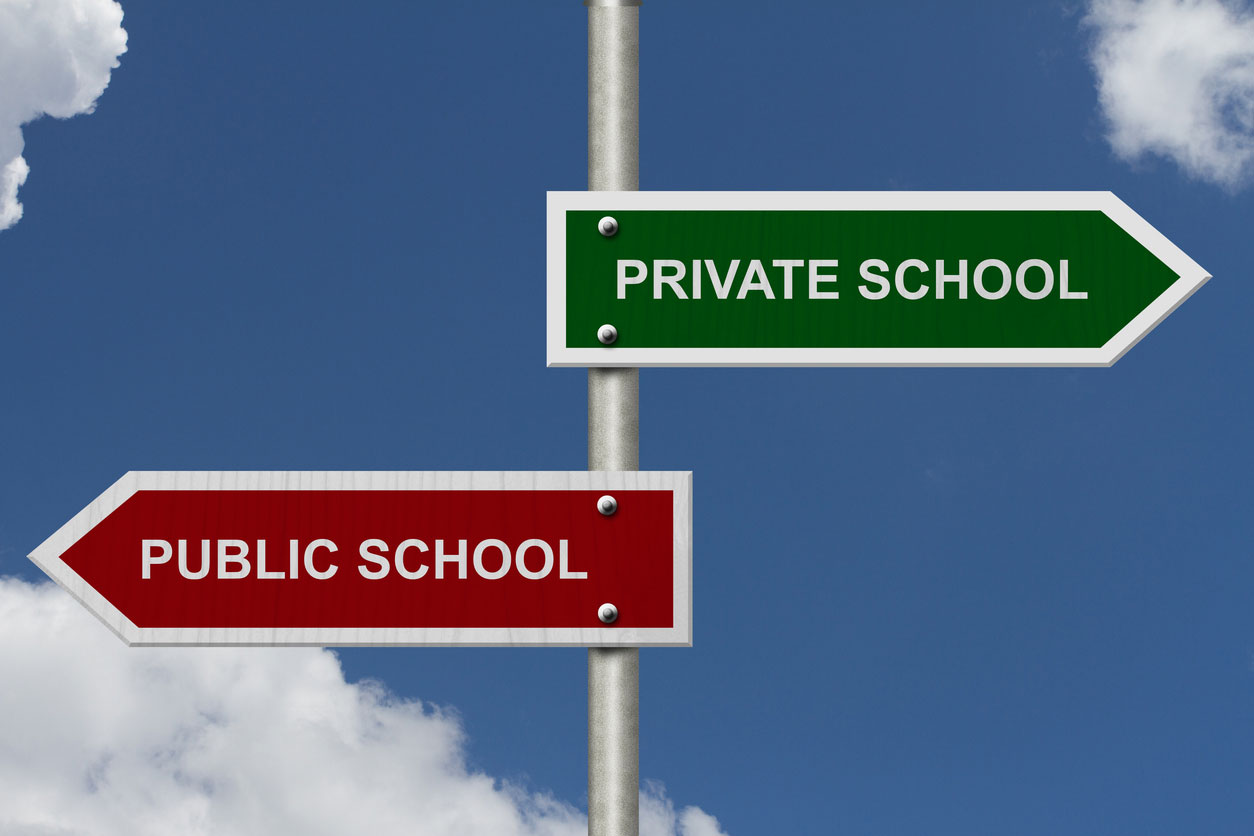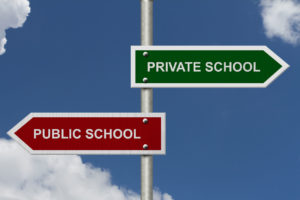

The short answer to the question “Do parents have an education choice for their children” is yes. Several factors, such as cost, quality, location, and educational quality play a role in determining where parents opt to send their kids to school. Over the past 20 years, other education option factors have emerged that include the establishment of online education curriculum.
Parents have five fundamental education options for their children, with two options considered the most common types of schools.
If you own a home, you understand where a significant part of your property taxes go. Public schools represent by far the largest slice of the education pie. Money generated from property taxes and other government revenue sources fund public education systems. The quality of public education varies widely within the United States. Moreover, curriculum standards in public schools often change, as evident by the No Child Left behind Act enacted in 2002 and Common Core curriculum mandates established less than 10 years later.
Private schools benefit students because of lower teacher to student ratios and the abundance of higher quality educational tools and resources. However, just like colleges and universities, private schools for children and adolescents charge tuition that parents must pay in addition to paying property taxes to fund public education systems. The choice between sending your children to a public or private school typically comes down to the ability to pay for a private education.
Public and private schools offer general educations, with older students having more curriculum options as they enter the junior and senior years of high school. Vocational schools prepare students for specific trades, from landing skilled labor to computer programming jobs. Also referred to as technical schools, vocational schools provide students with on the job training in the form of internships and apprenticeships. The primary benefit of a vocational education is students earn a living earlier than students enrolled in public and private school systems. On the other hand, vocational education students face a ceiling on earnings, unless they supplement their vocational training with college or university curriculum. If your child knows he or she wants to become a medical assistant or a lab technician, then enrolling the child in a vocational school might be the right education choice.
Private organizations establish and manage charter schools. Although state and federal education departments do not regulate charter schools, the schools must meet the same standards for academic achievement and financial management that the federal government legally mandates public and private schools. Charter schools have the flexibility to create innovative measures for attaining the education standards that public and private schools must meet. Detractors of charter schools believe the schools masquerade as private schools that receive public subsidies.
The explosion of online education programs at the collegiate level has sparked growth in the homeschooling education model for children and adolescents. Homeschooling used to require the dedicated attention of at least one adult to present curriculum that meets the academic standards set forth by state and federal regulations. The Internet has changed the homeschooling paradigm to the point that public and private schools have integrated online learning into traditional brick and mortar education programs. Because of the growing awareness that not all children learn the same way, homeschooling has received more favorable publicity over the past 10 years.
A licensed attorney who specializes in education law can help you learn more about the education options you have for your children. Contact one of our California education attorneys today to receive a free initial consultation.